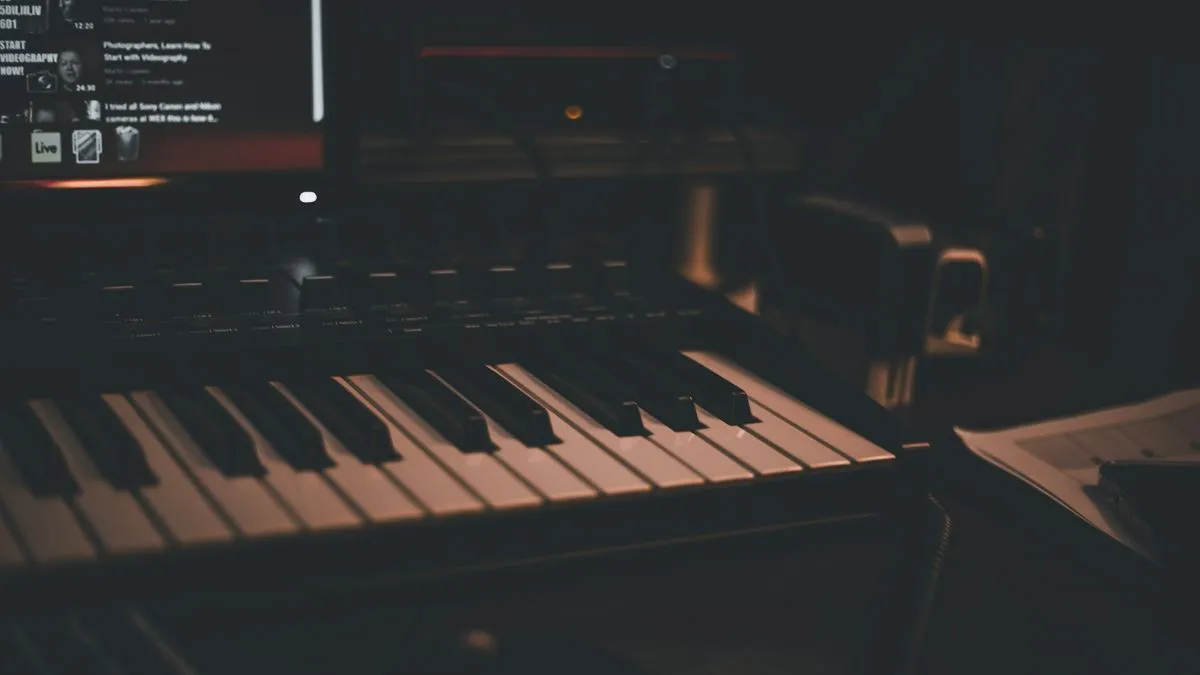Photo Credit: Panagiotis Falcos
A survey of 150 music creator college students from across the United States reveals that 93% of respondents have never seen any information from The Mechanical Licensing Collective (MLC). Just 17% were able to correctly identify the function of the Collective among several multiple choice options.
The MLC is the US-based body currently authorized by the federal government to collect and distribute streaming royalties to songwriters, composers, and music publishers. MusicAnswers shared their survey data exclusively with Digital Music News, while highlighting how few students realize that a regulatory body exists for mechanical publishing royalties.
Digging deeper, only 15% of respondents have received information about The MLC from American performing rights organizations (PROs), The Recording Academy, the U.S. Copyright Office, the Music Business Association, and the Harry Fox Agency combined, the survey revealed.
When tasked with identifying the MLC’s function, just 17% of survey respondents were able to correctly identify the MLC as ‘an agency that collects U.S. royalties for the reproduction and distribution of musical works.’ Citing the measly result, MusicAnswers — an advocacy group led by industry vets Phil Galdston, David Wolfert, Doug Wood, Derek Fawcett, and Matthew Dylan Rose — says the time has come to have a serious conversation within the community about how to better serve the needs of these up-and-coming independent music creators.
“The responses suggest that critical information about how to fully register songs isn’t reaching college student songwriters, guaranteeing that they’re not receiving royalties that are owed to them,” the group relayed.
That seems like an important distinction, particularly given that artists who haven’t released any music are understandably unaware of royalty collection details. On that point, however, MusicAnswers told DMN that roughly 50% in the survey have previously released music, though their awareness of the MLC wasn’t noticeably different than those that haven’t yet released music.
Of those who have released music, 84% of respondents had not registered with the MLC — leaving their streaming mechanical royalties unclaimed in the ‘black box’. According to DMN’s estimates, the current black box total of unclaimed royalties has now spilled into the billions of dollars.
The MMA provides that ‘black box’ royalties unclaimed by a date stipulated in the legislation will be paid to publishers registered with the MLC, prorated by market share. That stipulation serves to distribute royalties to rights owners instead of leaving money sitting in a bank account forever, though the criticism is that dominant publishers are positioned to soak up most of the black box money—although virtually none of it will have been generated by works they own or administer.
After all, songwriters, composers and publishers need to figure things out — and plenty of industry resources exist, including DMN — though MusicAnswers noted that the MMA also requires the MLC to actively inform the music creator community of their existence and role of the collective. That includes details on the processes required to secure any royalties due them—including the obligation to register their works with the MLC.
And what about awareness involving other royalty collection groups? On the performance royalty side, only 60% of respondents had registered their music with PROs ASCAP, BMI, or SESAC—a requirement to receive royalties from public performances.
Others, including SoundExchange, also had extremely low awareness and registrations from the survey group. A sampling of the survey results can be found below.
Share on:
You must be logged in to post a comment.
Only 17% of Music Creator College Students Are Familiar With The MLC, Survey Finds – Digital Music News
RELATED ARTICLES
